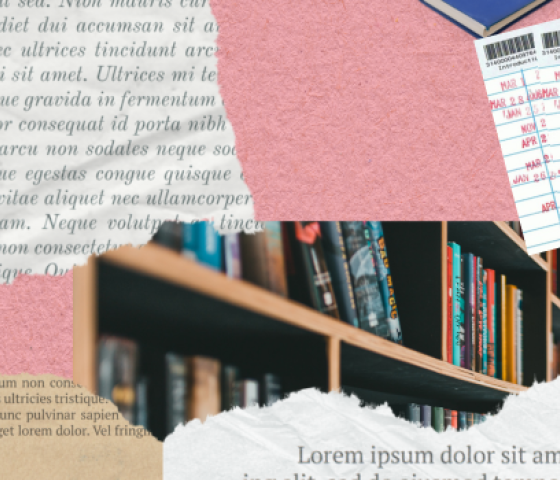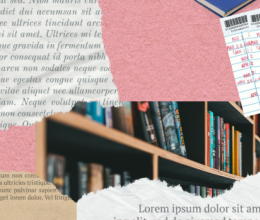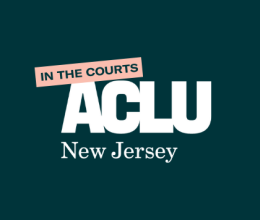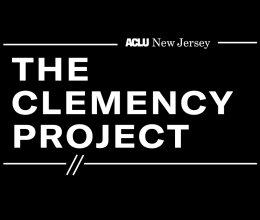In recent years, we've seen a surge of systematic attempts to ban books from libraries, classrooms, and curriculums across the nation with the aim to undermine experiences across all races, genders, and sexualities. Even though New Jersey has been a national leader in protecting and expanding civil rights and liberties, there have been censorship attempts across the state this year.
Censorship restricts access to under-represented voices and has no place in a healthy democracy. Everyone should have the opportunity to read books that include experiences and identities that represent their own. And learning about experiences different than our own helps our state, and our country, become more inclusive. New Jersey has an obligation to lead by example in defending the right to freely speak, think, read, and write.
I sat down with Martha Hickson, 2023 New Jersey Librarian of the Year, to talk about how book bans threaten the very foundation of our democracy.
You’ve been a school librarian for many years, and your work has also transformed into advocating against books bans and censorship. Can you tell us a little bit about how and why you started doing this advocacy work?
I wish I could say that for all 19 years I’ve been a school librarian I advocated for the right to read with the same ferocity I do now, but that would be stretching the truth. Of course, I celebrated Banned Books Week every year with a display, activities, and a contest for the kids, but it wasn’t until 2019 that I truly became a warrior.
In January of that year, my superintendent tried to bypass district policies and force me to remove Fun Home by Alison Bechdel from the school library on his say-so. He considered the book pornographic and said having it on the shelves risked “debauching the morals of minors.” That abuse of power would have infringed students’ right to read. So I refused to comply, and a thorny eight-month fight ensued. Long story short: the book is still in the library.
Through that battle, I assembled a network of community supporters known as the North Hunterdon-Voorhees Intellectual Freedom Fighters. They rallied again in September 2021 when a small group of parents attempted to ban five books, all with LGBTQ+ themes. That attack was among the first in what has since become a nationwide wave of censorship attempts over the last two years. After a five-month struggle, we retained all five books. Ever since, I’ve been sharing what I learned with librarians around the world and presenting to community groups.
Why exactly are book bans so dangerous and undemocratic?
Let’s just start with the First Amendment, which under the umbrella of free speech guarantees the right to read. When that right is infringed – especially as it is being done now by targeting books that feature LGBTQ+ and BIPOC themes and authors – the result is a lack of representation. Students can’t see themselves or learn about others. Empathy erodes.
Beyond harm to the individual reader, censorship creates a culture of fear and ignorance. When certain stories and histories can’t be spoken, curiosity is stunted. Education is diluted because teachers are afraid to address controversial topics or engage in class discussions. People can’t begin to question or explore what they never even knew existed.
How have attempts to ban books and censor information changed in the past few years? Have you seen any particular trends?
I think the biggest trend is the organized nature of current censorship attempts. In my career as a librarian, from time to time an individual parent would express a concern about a library book. That usually sparked a conversation. The parent would describe their issue, and I would explain the book’s merits and offer to help the parent and student find another title that might be a better fit. Problem solved; nothing banned; no manufactured outrage at a board meeting.
Today it’s completely different. The conversation piece has vanished. People with a gripe head straight to the board of education. Groups calling for censorship compile lists of books to be targeted and bring scripts to school board meetings. As a result, challenges against once-obscure books like Gender Queer and Lawn Boy have spread like weeds.
Even worse, in the past when the rare challenge occurred, it was to a single book at a time. Now we’re seeing multiple books challenged simultaneously. In fact, in 2022, the American Library Association found that 90% of that year’s book challenges involved multiple titles, with 40% targeting 100 or more books at the same time. That’s a direct and cynical result of coordinated censorship.
You’ve mentioned that these bans and the pushback against librarians have resulted in soft censorship. Can you explain what that is and how it works? How is it impacting you, your colleagues, and your students?
Soft censorship is a byproduct of a climate of fear, and it occurs when a librarian decides to quietly remove a book from the shelf for fear that it’s too controversial, or they don’t purchase a title because they think it might get negative attention, or a teacher skips a topic to avoid backlash. Soft censorship is insidious because it happens in the shadows – only the teacher or librarian knows that it occurred.
School Library Journal found that 47% of school librarians admitted to having voluntarily removed a book in 2023. That’s up from 42% in 2022. I suspect the real number is even higher.
The result is that students are short-changed. Instead of access to a robust library collection or a comprehensive curriculum that challenges them to think critically, they get a tame version selectively and secretly diminished by one person.
Are there signs of censorship that people should look out for in their school districts?
Be mindful of spikes in board meeting attendance. That’s a pretty good indicator that controversy is brewing. It doesn’t have to be in your own school district either. If protests are occurring nearby, the issue is likely to head to your community, too. These culture wars are contagious.
On the board agenda, watch out for policy changes, especially those having to do with curriculum, textbooks, library resource materials, or diversity. Most of these policies are fairly stable and have been on the books for years. Changes now may indicate the influence of pro-censorship groups.
Pay attention to who’s speaking during public comments and where they’re from. Much of the uproar at school board meetings is generated by a small band of agitators who coordinate via social media and roam from town to town – and very likely don’t represent or live in your community.
How do book bans affect students specifically? What else can concerned parents and students do to combat these censorship attempts?
Obviously, censorship robs students of opportunities for a complete education, but this current wave is even more toxic because it attacks identities. The targets of today’s book bans are overwhelmingly books by and about LGBTQ+ people and people of color. Students who identify with these communities get the message that their own existence is shameful and that their stories have no value.
The hateful rhetoric and outrageous behavior of book banners at school board meetings have invaded the school buildings themselves. LGBTQ+ students at my school told the board that they have been subjected to more bullying, harassment, and slurs in the wake of the censorship attempts. One of my students even received death threats after he circulated a petition in support of the library.
The hostile climate created by book banning can result in tragic consequences. According to the Trevor Project, 41% of LGBTQ+ youth seriously considered suicide in the past year. But kids who live in an accepting community, go to an affirming school, and see themselves represented in media – such as library books – have a lower risk.
And that’s where parents and students play a huge role. It’s important to make your acceptance and support known before, during, and after censorship comes to town. Request and read frequently challenged books. Attend library programs, especially those addressing marginalized groups. Write to decision-makers, such as school administrators or library boards, to express your appreciation for diverse books and programs. Ask a librarian how you can help. Attend board meetings and bring friends. And most importantly, vote and spread the word for candidates who support intellectual freedom, from the board of education all the way up to the White House.
Can you talk about what’s different here in NJ and how it compares to what you’ve seen in other states?
I have this conversation almost every day. Many people are under the false impression that book banning is a “red state” problem. They’re stunned when I tell them that over the last two years there have been attempts to ban roughly 35 titles in at least 11 of New Jersey’s 21 counties. And those are just the challenges we know about through reporting.
Although the volume of book challenges hasn’t been as large in New Jersey as we’ve seen in places like Florida or Texas, the patterns are the same, as are the titles and themes.
Over the last year, censorship targets across the country have broadened from school libraries to public libraries. So, too, in New Jersey. Thanks to huge community support, in February the Glen Ridge Public Library successfully fought attempts to ban six books about sex and sexuality. In July, the Cedar Grove Library board restricted access to Gender Queer, despite public outcry.
These restrictive efforts don’t stop at books. Florida quickly moved from attacks on books about LGBTQ+ people to laws further marginalizing LGBTQ+ people. We’re seeing something similar in New Jersey, too. Throughout the state, some groups are attempting to scrap school board Policy 5756, which ensures a safe, supportive, inclusive learning environment for transgender and gender nonconforming students. School boards in Hanover, Colts Neck, Lafayette, and Sussex-Wantage have repealed the policy, while Holmdel, Sparta, Millstone, Howell, and Roxbury, among others, are gearing up to do the same.
On a positive note, we’re starting to see resistance to censorship. Both Illinois and California have enacted legislation to prohibit book banning. New Jersey state senators Andrew Zwicker and Teresa Ruiz introduced a similar bill (S3907) to prevent the censorship of books for partisan or doctrinal reasons, with hopes to have the bill on Governor Murphy’s desk by the end of this year.
If there is one key message you’d like our members to take away from our conversation, what would it be?
Show up and speak out. My husband and I have been attending board of education meetings monthly for the last two years, and it’s disheartening to see how easily extremists have seized control of the narrative. Although vast majorities of Americans oppose book banning, those folks aren’t showing up at board meetings. If you’re not there to advocate for students and their right to read freely, decision makers yield to the persistent demands of a small, vocal, extremist minority.
Speaking out can feel scary, but these are not the times to be timid. If not now, when? If not you, who?
To get talking points, check out the toolkits from Unite Against Book Bans and GLAAD.
To hear more from Martha and to learn more, watch the ACLU-NJ's recent panel discussion, More than Empty Shelves: How Book Bans Undermine Identities and Restrict Information.






